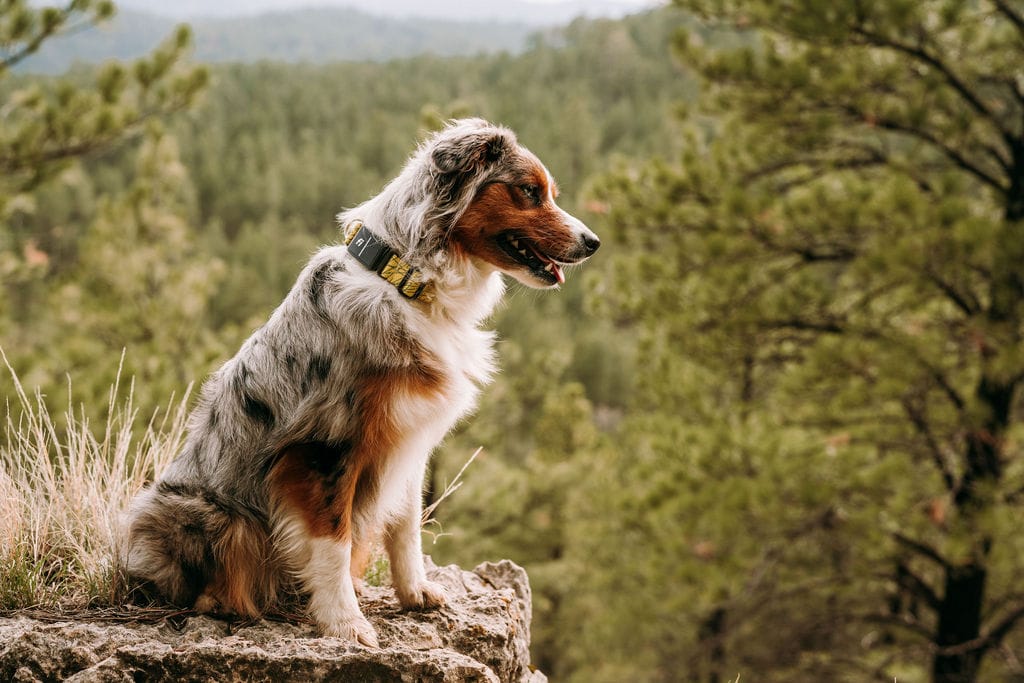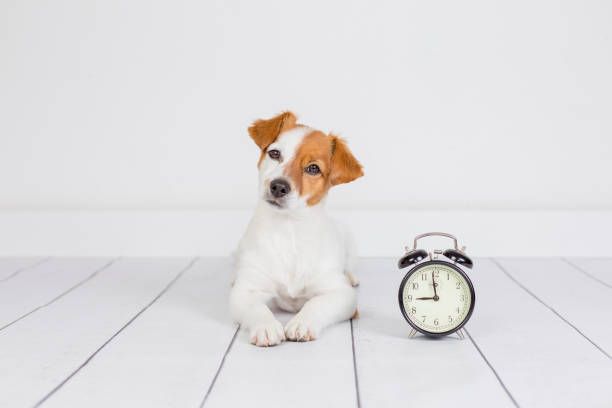If you're a dog owner or have spent time around dogs, you might have noticed their tendency to gently chew on each other, their humans, or even various objects. You could be curious about why your dog nibbles on you, a behavior known as cobbing. This is distinct from more aggressive biting, which can happen if a dog feels threatened. Instead, cobbing is usually quite soft and might leave you puzzled about the reasons behind it.
This article delves into this common practice among cobbing dogs. It aims to shed light on the reasons behind your furry friend's nibbling habits, addressing any queries you might have about this behavior. Additionally, it will provide you with advice on how to respond when your dog exhibits this cobbing behavior towards you.

Why Does My Dog Nibble On Me?
Dog cobbing is simply the gentle nibbling that your dog does to you, your cat, your neighbor's cat, other people, other dogs, or objects such as its blanket and toys. Some people refer to it as the “cute nibble” or if you have a pitbull the "Pibble Nibble."
A dog, while cobbing, will peel back their upper and lower lips and use their front teeth to gently nibble on you. This action resembles the human action of nibbling at a corn cob with your front teeth, hence the name “cobbing.”
So why do dogs cobb? What drives their universal behavior to gently nibble with their front teeth as though they are sending out a message? The section below highlights the answers to these questions.
Understanding Cobbing Dogs: Why Your Dog Engages in This Behavior
1. To Stimulate Milk
In some scientific ways, the cobbing of newborn puppies at their mother's teat encourages the production of milk. This primal action by dogs that forms an essential part of their early development grows to become a sign of affection later in their lives.
2. To Display Affection
The human action of hugging is somewhat similar to the dog's action of gently nibbling with their front teeth. When comfortable, a dog will generally cobble at you, another person, or another dog. Even mother dogs cobb at their puppies like giving gentle kisses.
Therefore, do not worry next time your dog gently nibbles on you and starts biting you quickly and rhythmically. Dogs generally tend to do this when they are relaxed and resting next to you. Even when they do this with other animals, it is a sign of a positive relationship, and therefore there is no need to worry.
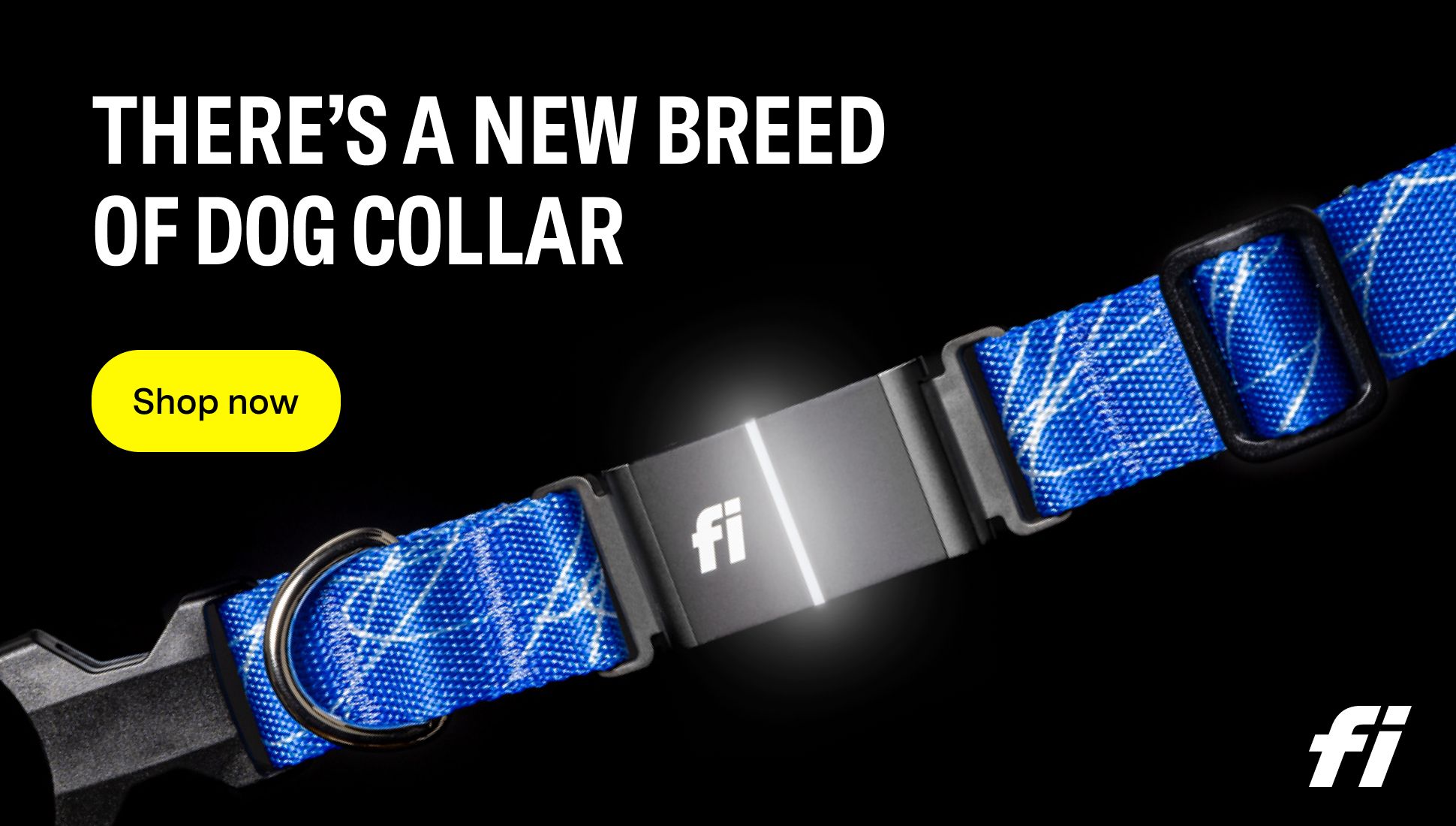
3. To show signs that they want to play
Dogs love to play. From puppies to adult dogs, play forms a big part of dogs' lives. When they want to play, dogs usually start by nibbling at each other in a playful manner. This is a sign of socializing. This may also be the case when your dog nibbles at you. They may want to play with you and are simply seeking your attention.
4. To get your attention
When you are lying on the couch watching a movie or scrolling through your phone, you may have felt a gentle nibble on your hand from your dog. This is a gentle sign that your dog is simply asking for your attention.
As a result, gentle cobbing for your attention is not as troublesome as biting during play. You can simply return this call for attention with a good ear scratch or a gentle rub on their body.
5. To scratch an itch on their body
If your dog has an itch on their body, they may scratch it through the chomping motion of their front teeth. This type of cobbing is different from the usual gentle nibbling and may tend to be a little stronger than usual. This is because they are trying to scratch that itchy part of their body.
You should take great caution when a dog cobbs at their own body, as it may be a sign that they are removing a parasite (such as a flea) or an object stuck in their fur. If it is an object stuck in their hair, you can simply remove it. However, if they keep on cobbing frequently at their bodies, it may be a sign that you need to deworm your dog.
6. To Relieve Stress and Anxiety
Just as some people bite their lower lip when they feel stressed or anxious, dogs equally cobb as a way to calm their nerves. It is usually an instinctive reaction that develops from their primal action of gently nibbling at their mother's breasts. Since gentle nibbling is self-soothing, they will do it to relieve stress.
There is no cause for concern when your dog nibbles on itself once in a while to relieve stress and anxiety. However, if they continuously do it, they may break their skin and hurt themselves, causing an injury or infection on their skin. Moreover, your dog could nibble at an object and cause damage to the object or its own teeth. Hence, if this is so, you should find playful objects for your dog to keep him occupied.
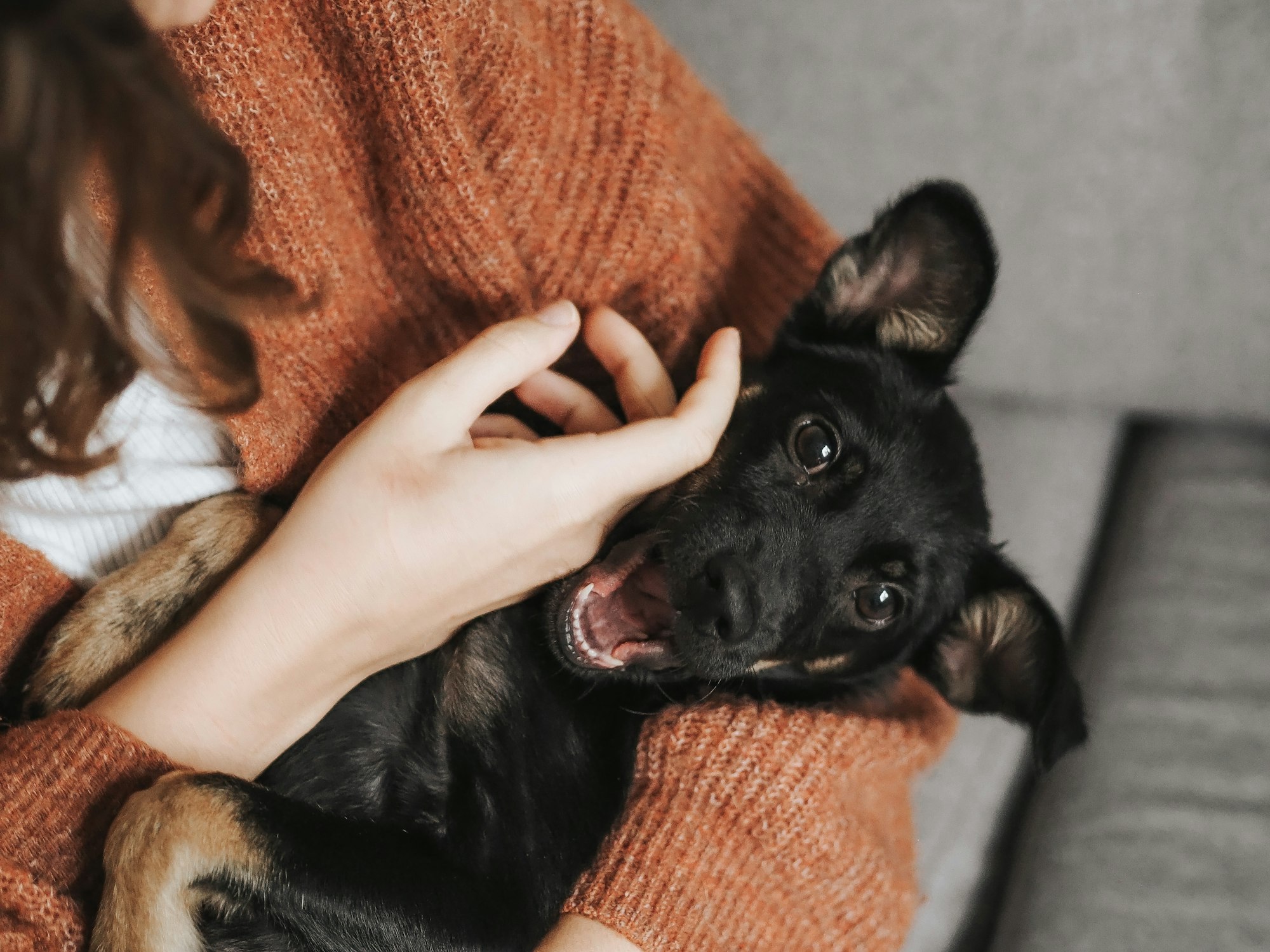
Health and Safety Considerations
While dogs cobbing is often a benign and affectionate behavior, there are instances where it may signal underlying health issues. Understanding the cobbing meaning in the context of your dog's overall behavior and health is crucial. This gentle nibbling, reminiscent of a dog corn cobbing, can sometimes escalate or be a response to discomfort.
When Dogs Cobbing Might Indicate a Health Issue:
- Persistent or Intense Cobbing: If your dog's cobbing becomes more frequent or intense, it could be trying to alleviate discomfort from dental issues or gum disease.
- Targeted Cobbing: When a dog consistently cobs at a specific area on its body, it might be an attempt to address an itch or pain, possibly due to skin conditions, parasites, or allergies.
Ensuring Cobbing Does Not Lead to Destructive Behavior:
- Monitoring the Intensity: Keep an eye on the force behind your dog's cobbing. While gentle nibbling is normal, stronger biting could lead to injuries or property damage.
- Providing Alternatives: Ensure your dog has access to suitable chew toys to satisfy their need to nibble without resorting to inappropriate objects or developing destructive habits.
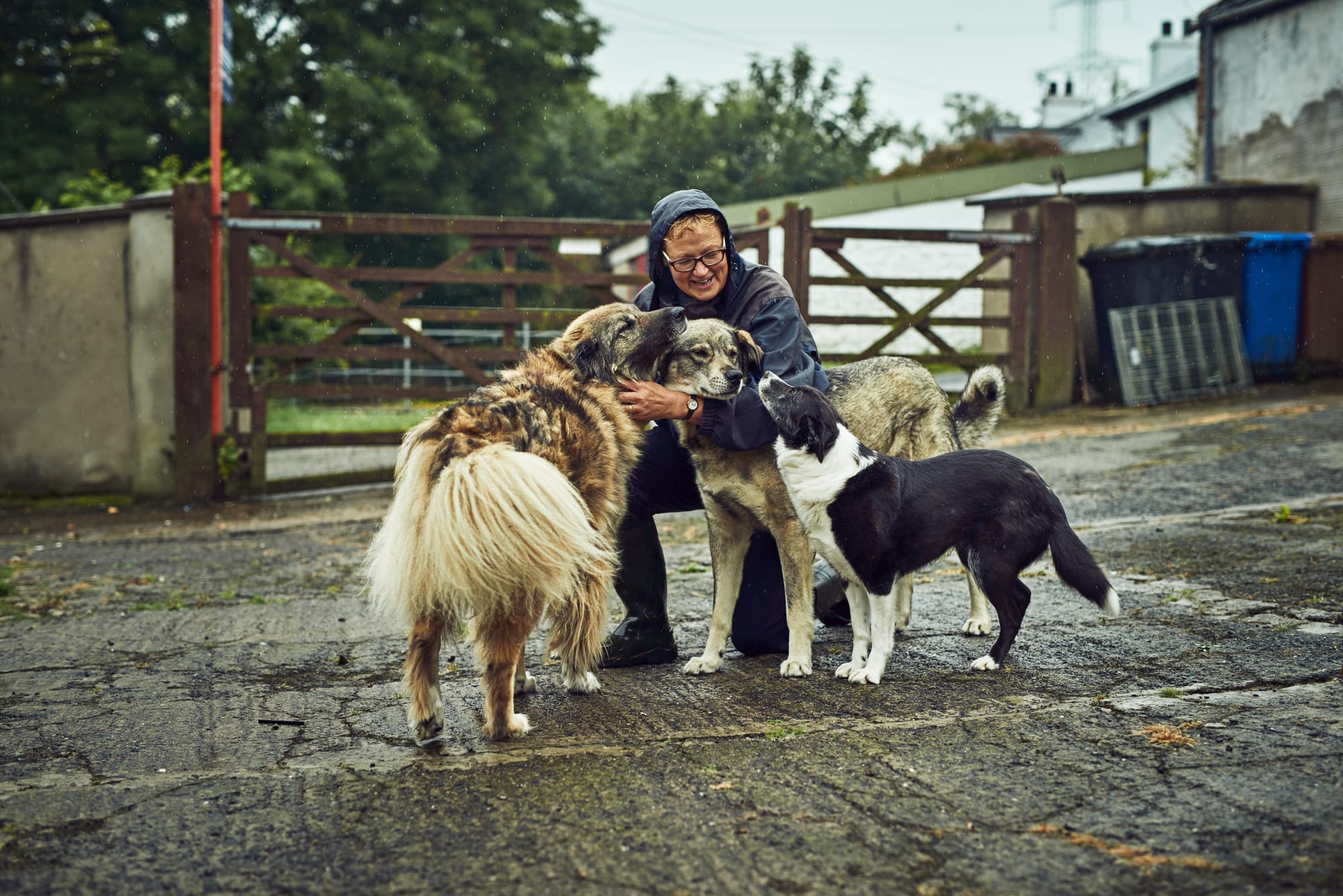
Keep Your Playful Pup Safe and Engaged
Understanding your dog's cobbing behavior is crucial, and keeping them safe while they express their natural instincts is equally important. The Fi Dog Collar is designed to enhance your peace of mind by ensuring your dog's safety through advanced tracking technology. With the Fi Dog Collar, you can monitor your dog's activities and location in real time, which is especially useful if their nibbling behavior leads them into mischief or out of sight.
Additionally, the Fi app allows you to set up geofences, ensuring your playful companion remains within safe boundaries even when they're exploring or expressing affection. Secure and connect with your dog in a whole new way with the Fi Dog Collar, giving them the freedom to express their natural behaviors while keeping them safely under your watchful eye.
Signs That a Vet Visit Might Be Necessary:
- Changes in Cobbing Behavior: A sudden increase in cobbing frequency or a shift to more aggressive chewing warrants a closer look by a professional.
- Physical Symptoms Accompanying Cobbing: Look out for signs of discomfort such as whining, limping, or excessive scratching in conjunction with cobbing.
- Unexplained Aggression: If your typically gentle cobbing dog starts showing aggression during these nibbling sessions, it could be a sign of pain or discomfort needing veterinary attention.
While dogs cobbing is generally a harmless behavior symbolizing affection or play, paying attention to the nuances of this action can help ensure your furry friend remains healthy and happy. Recognizing when the behavior strays from the normal cobbing meaning and into potential indicators of health issues is key to providing the best care for your dog.
Why Do Dogs Nibble on Each Other?
Dogs often nibble on each other as part of their social interactions, a benign behavior rooted in their pack instincts and communication methods. This gentle nibbling, typically seen during play or as a form of grooming, serves multiple purposes. It helps strengthen bonds between dogs, establishes social hierarchies, and provides comfort. Puppies, especially, learn bite inhibition and social cues through such interactions. Additionally, nibbling can be a way for dogs to explore their environment and the beings within it, using their mouths as sensory tools to understand and relate to their fellow canines.
Conclusion
In conclusion, the behavior of dogs cobbing, characterized by gentle nibbling on humans, other dogs, and objects, is a multifaceted aspect of canine communication and social interaction. Far from being a simple or random action, cobbing is rooted in natural instincts and behaviors that serve various purposes, from expressing affection and soliciting play to self-soothing and even addressing physical discomfort.
While generally harmless and often endearing, it's important for dog owners to understand the nuances of cobbing, recognizing when it may indicate underlying health issues or require intervention to prevent destructive habits. By fostering a deeper understanding of why dogs engage in cobbing and how to appropriately respond, owners can enhance their relationship with their furry companions, ensuring a happy, healthy, and harmonious coexistence.
FAQs
- What is Cobbing in Dogs?
- Cobbing refers to the gentle nibbling behavior dogs exhibit towards humans, other dogs, or objects, using their front teeth. Unlike aggressive biting, cobbing is usually soft and affectionate.
- Why Do Dogs Engage in Cobbing?
- Dogs may cob for several reasons, including to express affection, invite play, seek attention, relieve an itch, or manage stress and anxiety. It's a multifaceted behavior with roots in their developmental stages.
- Is Cobbing a Sign of Affection?
- Yes, cobbing is often a sign of affection and comfort. Dogs may gently nibble on their owners or other dogs as a way of showing love and bonding, similar to how humans might give hugs.
- Should I Be Concerned if My Dog is Cobbing?
- In most cases, cobbing is harmless and does not require concern. However, if the behavior becomes excessive, aggressive, or is accompanied by signs of discomfort, it might indicate an underlying health issue that warrants a vet visit.
- How Can I Manage Excessive Cobbing in My Dog?
- To manage excessive cobbing, ensure your dog has plenty of chew toys and engage in regular play and training to redirect the behavior. If cobbing is persistent and intense, consulting a veterinarian or a professional dog trainer for advice is advisable.
Want more dog related articles:
